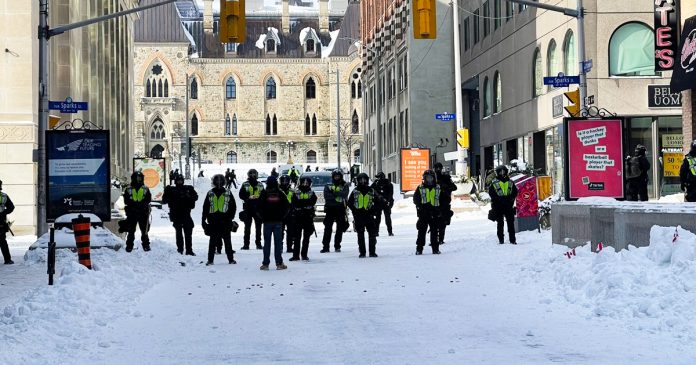Two women were removed from their Air Canada flight prior to takeoff after they refused to sit in seats that were covered in a previous passenger’s vomit. The airline has since apologized for their removal.
“They clearly did not receive the standard of care to which they were entitled,” said Air Canada in a statement to National Post.
The airline said it is “reviewing this serious matter internally and have followed up with the customers directly as our operating procedures were not followed correctly in this instance.”
The flight departed from Las Vegas to Montreal on Aug. 26, and Susan Benson, a passenger onboard who witnessed the exchange said that it was believed to be a passenger from a previous flight who had vomited on the seats.
Benson posted her witness account of the events on her Facebook, saying that flight staff had attempted to clean the vomit using coffee grounds and spraying perfume but by the time the passengers boarded the plane for the next flight, the seats remained wet with “vomit residue.”
The two female passengers who were assigned to those seats were upset by the fact that they were expected to sit on them.
“The flight attendant was very apologetic but explained that the flight was full and there was nothing they could do. The passengers said they couldn’t possibly be expected to sit in vomit for five hours,” wrote Benson.
Benson said that a supervisor eventually came to speak with the two passengers and reiterated the message that they were to sit in the seats, regardless of their state.
The two passengers asked for blankets and towels so that they could continue cleaning the vomit themselves, according to Benson.
“They got themselves settled with blankets and wipes and next thing we knew the pilot came down the aisle and very calmly knelt down and told the two ladies that they had two choices: They could leave the plane on their own accord and organize flights on their own dime, or they would be escorted off the plane by security and placed on a no fly list!” wrote Benson.
Benson wrote that the pilot accused the passengers of being rude to the flight staff and then gave them said ultimatum.
“They were upset and firm, but not rude,” wrote Benon, referring to the passengers’ treatment of the flight staff.
Once the pilot left the situation, the two passengers were escorted off the plane by security.
“For what? Refusing to sit in vomit for five hours! Air Canada literally expects passengers to sit in vomit or be escorted off the plane and placed on a no-fly list!” wrote Benson.



























